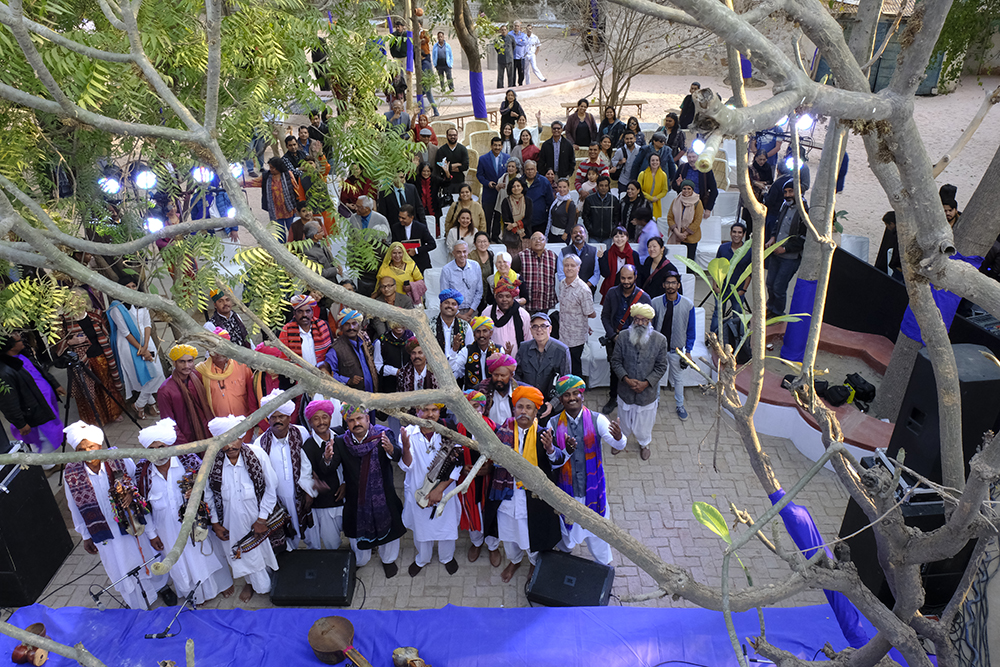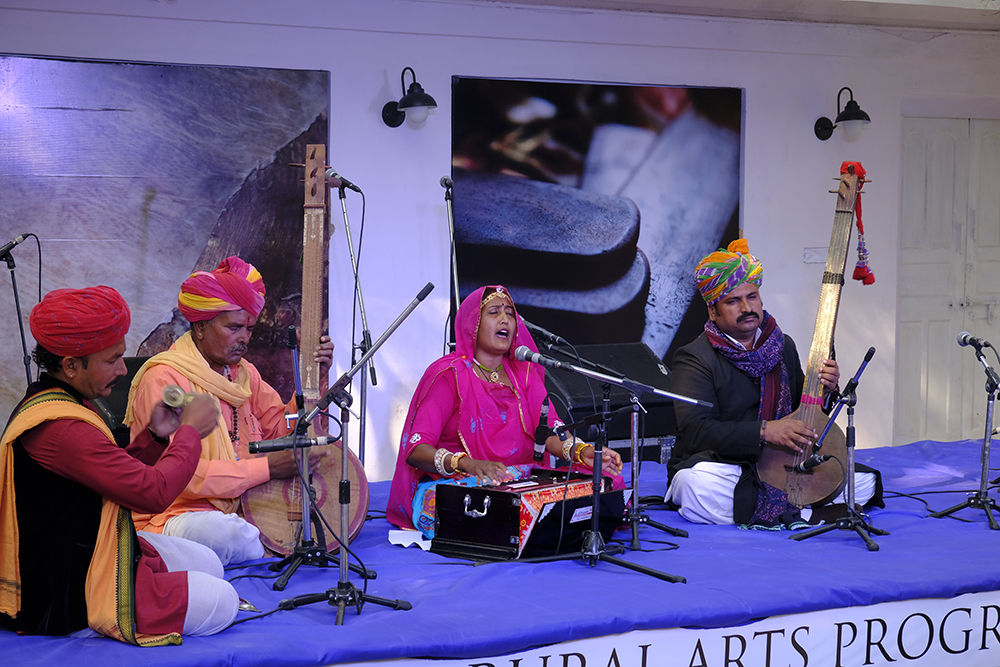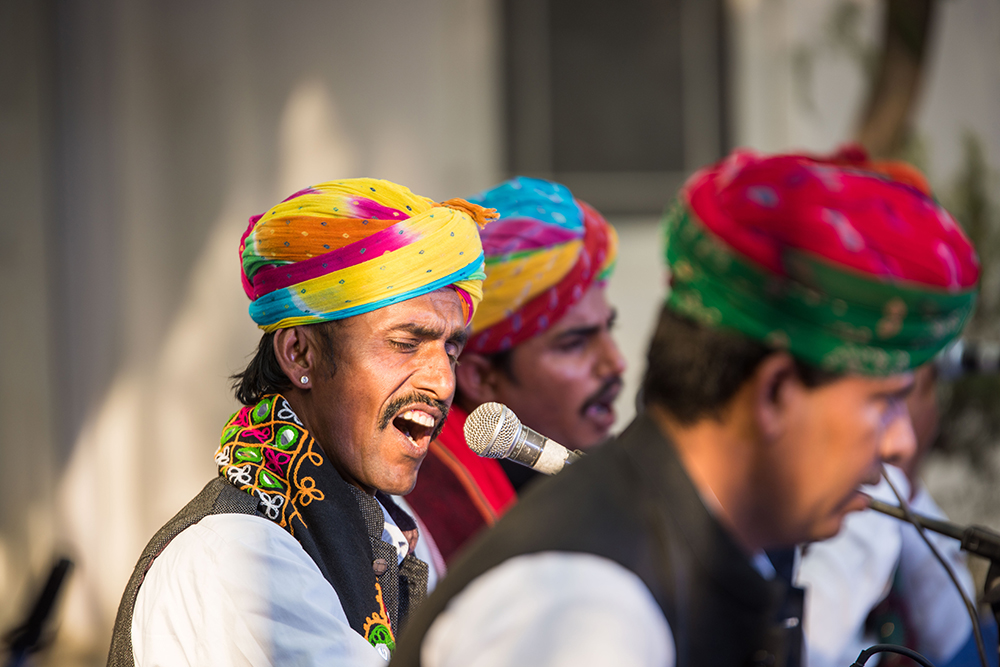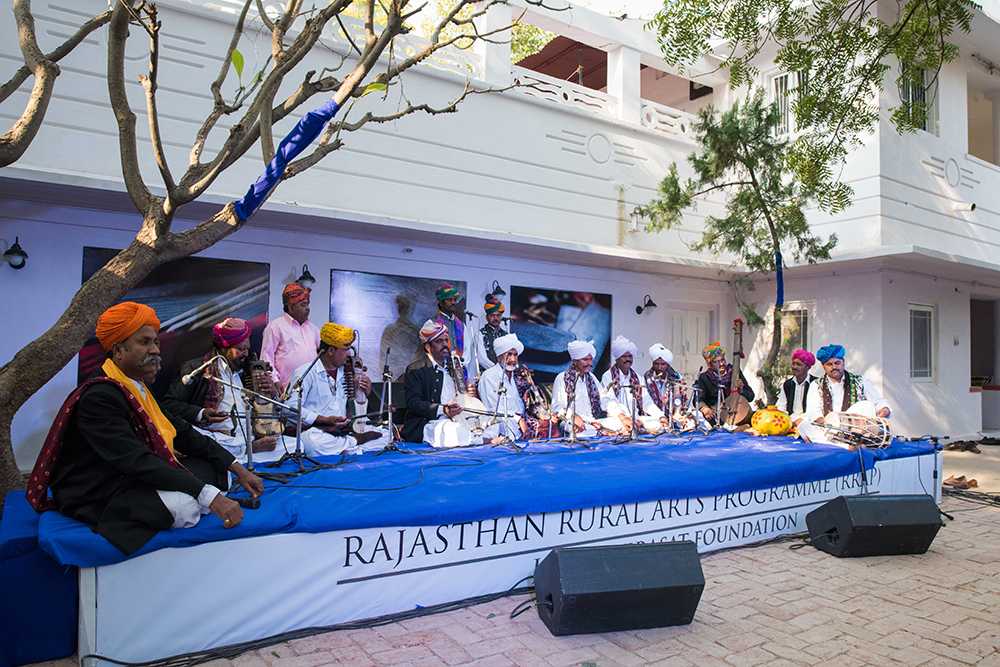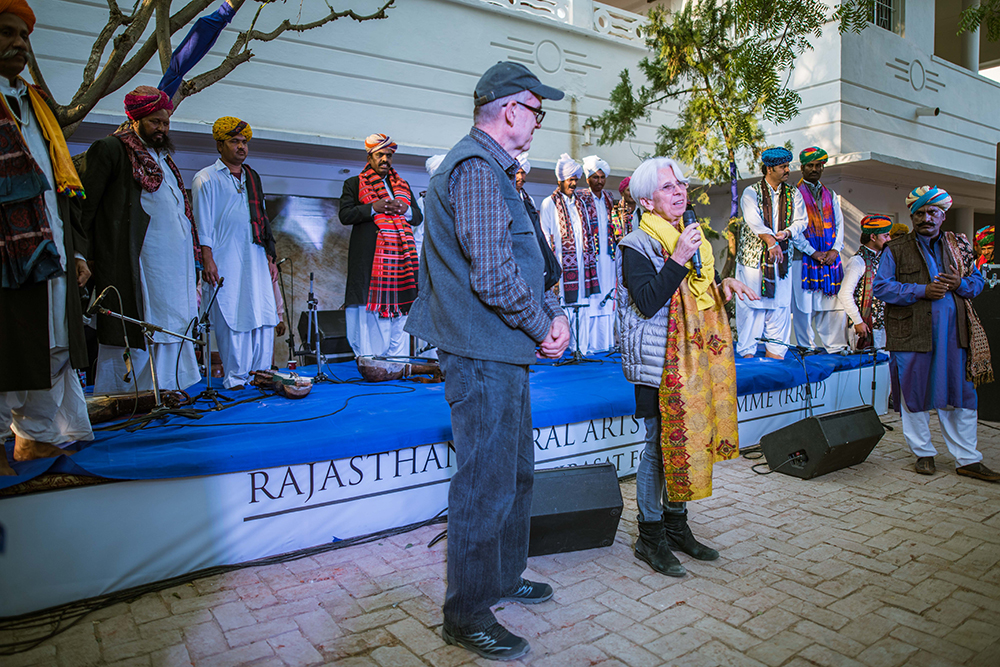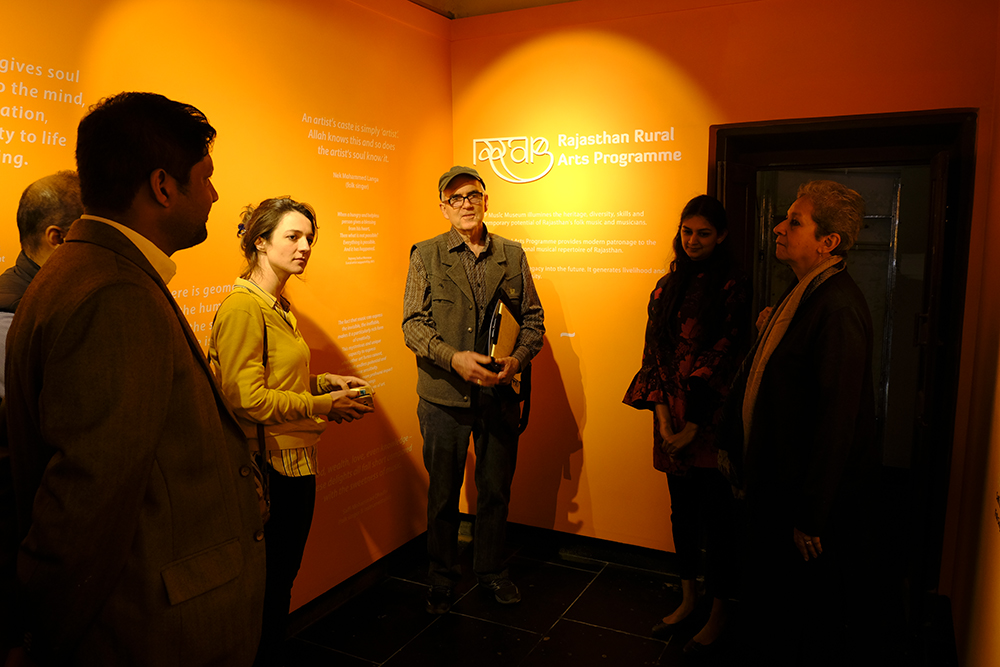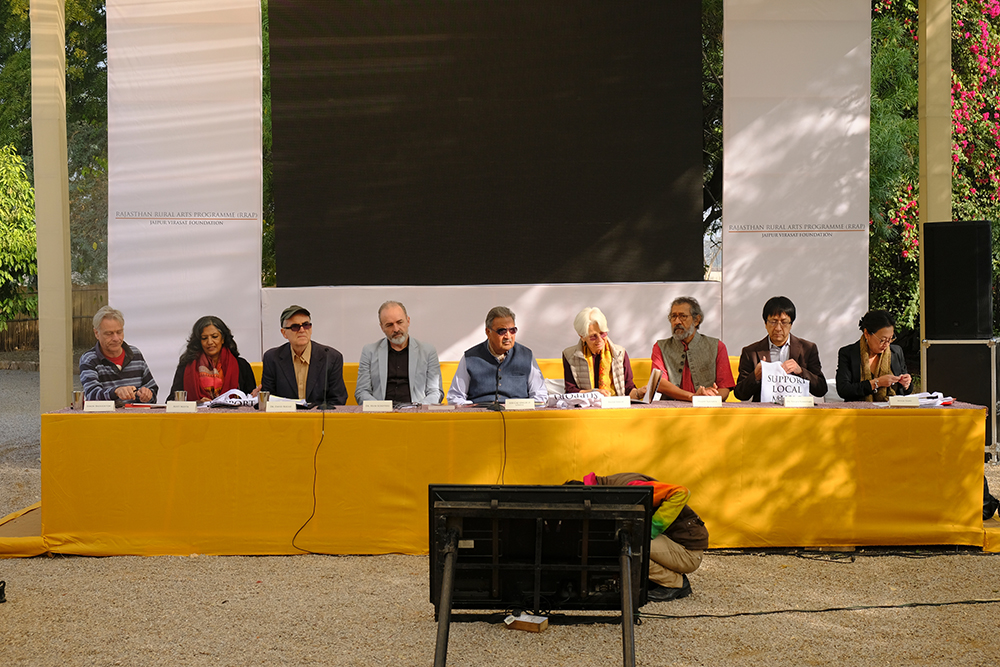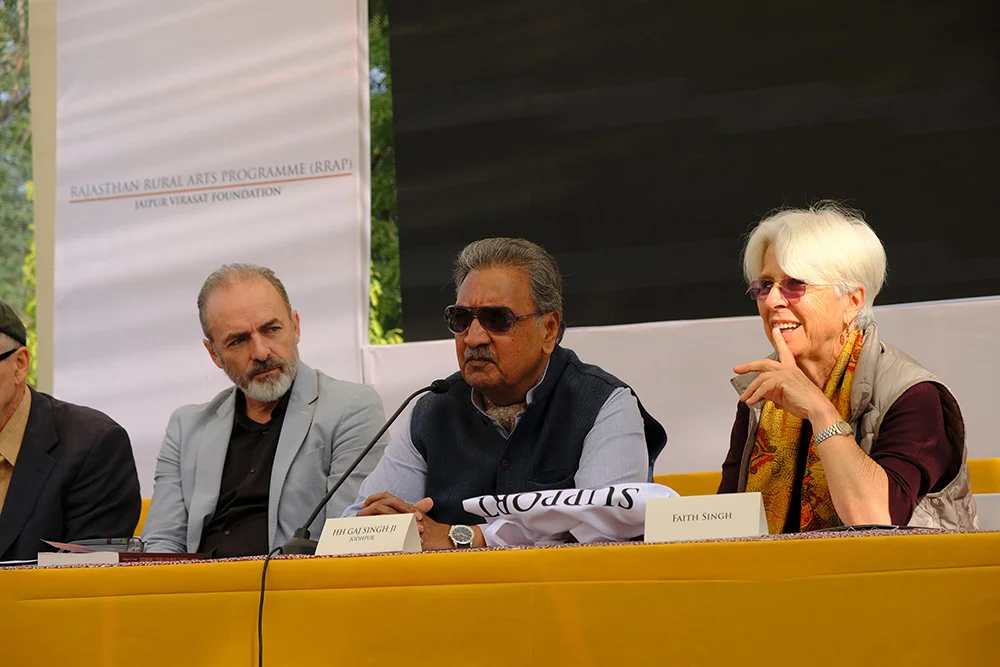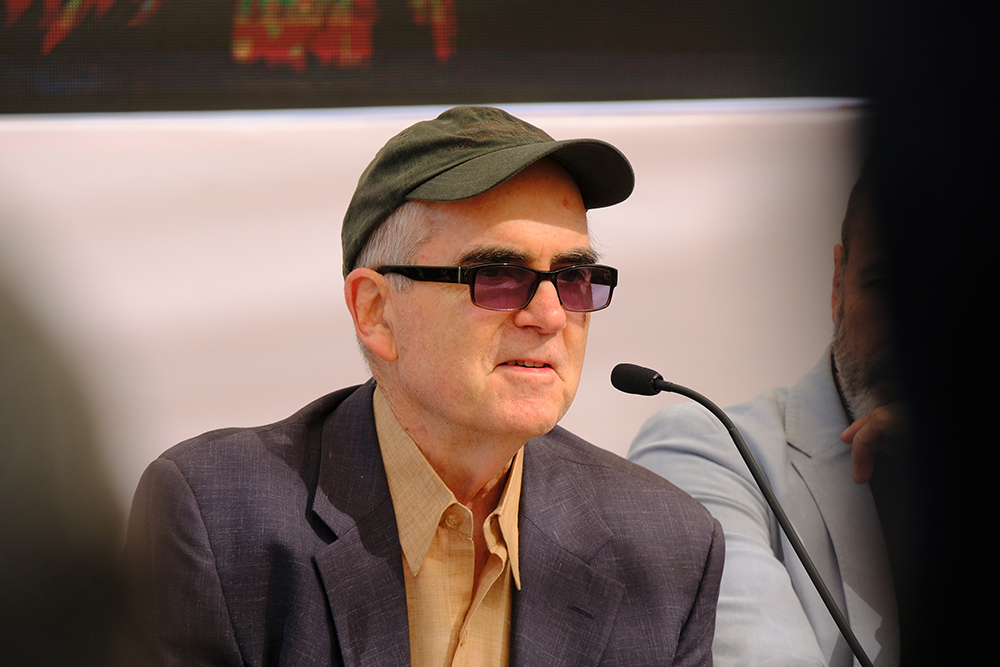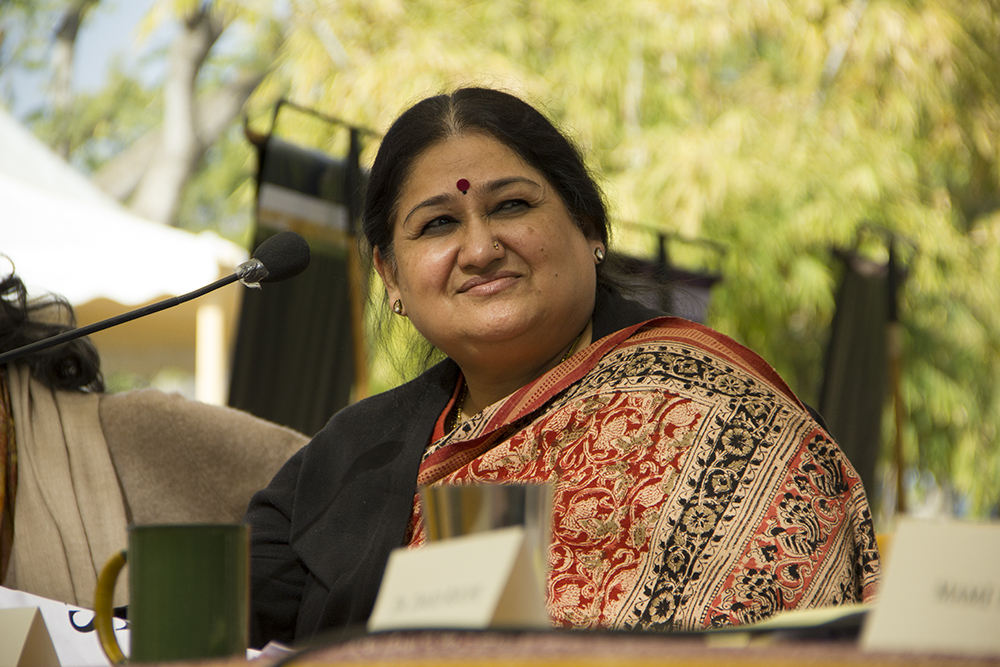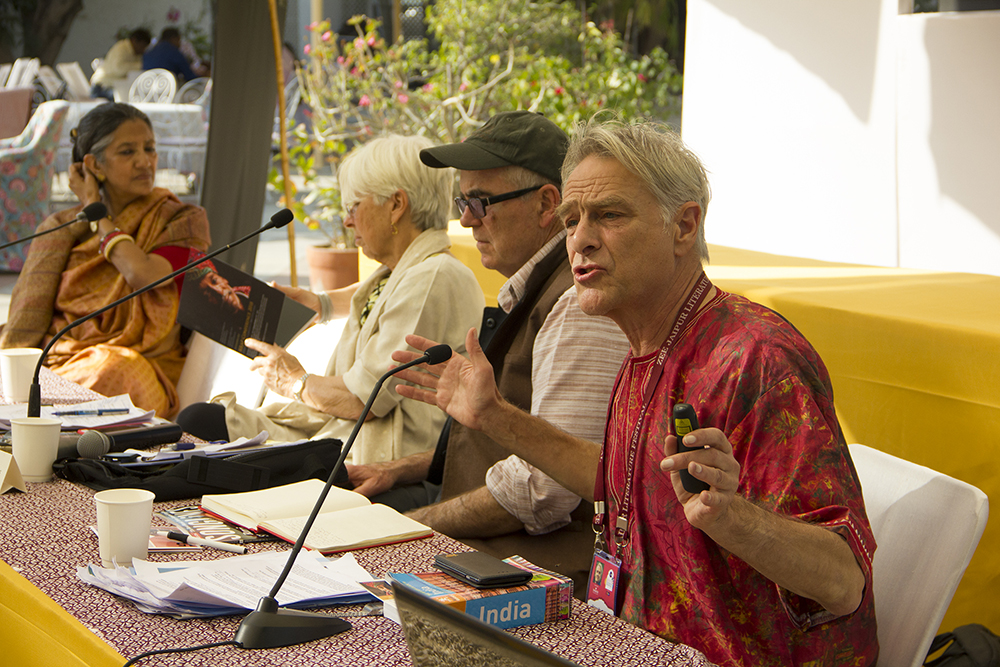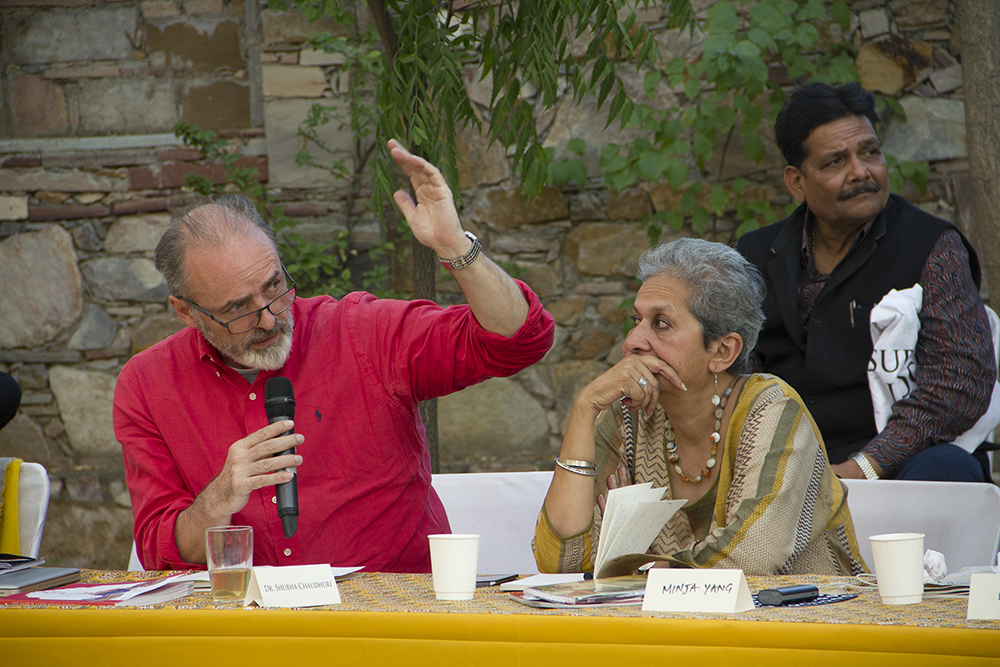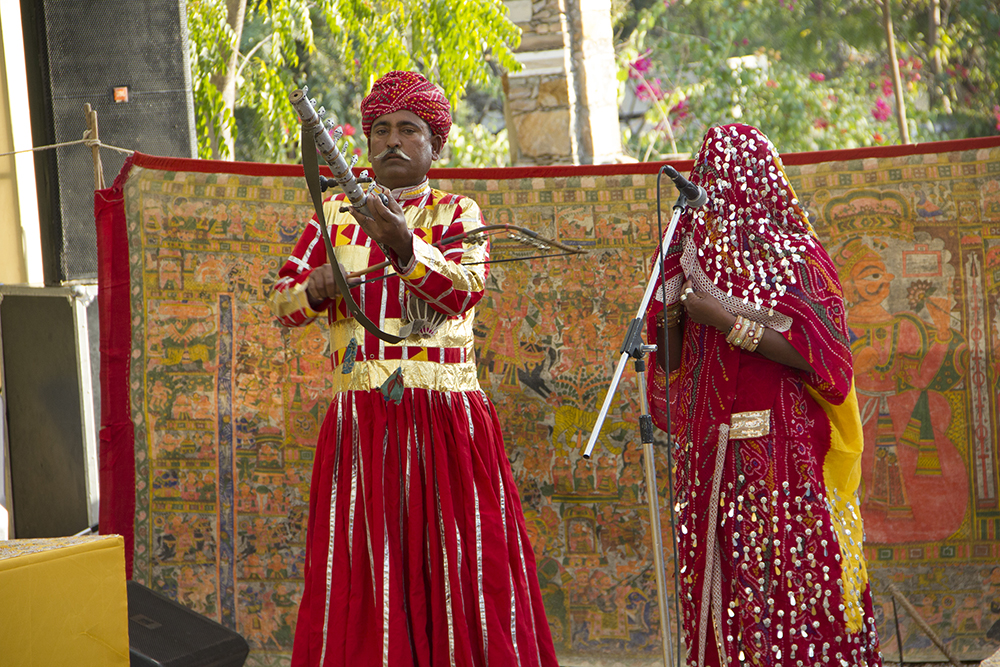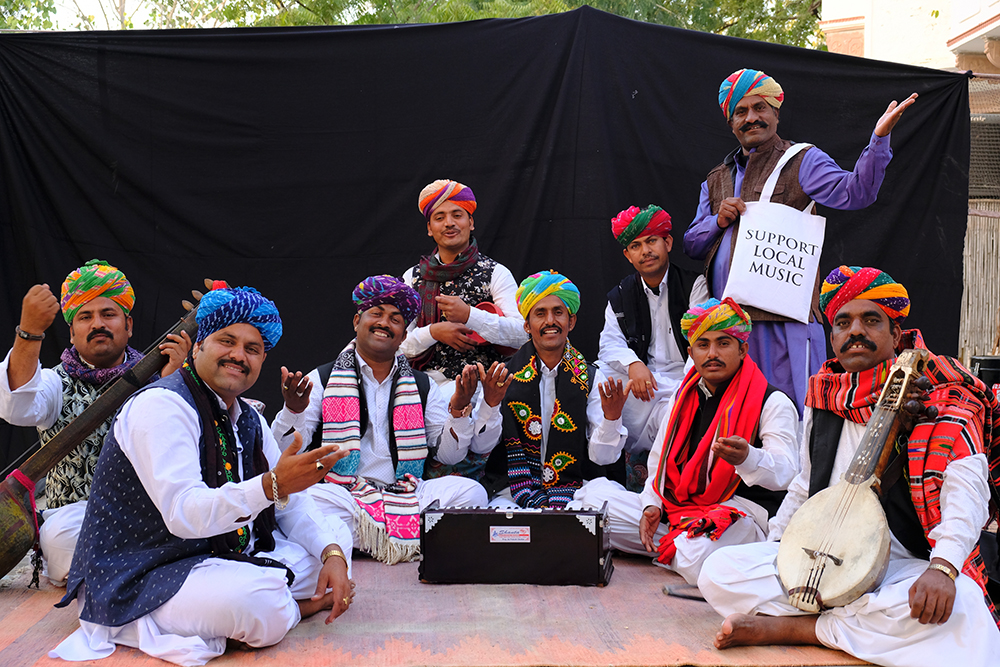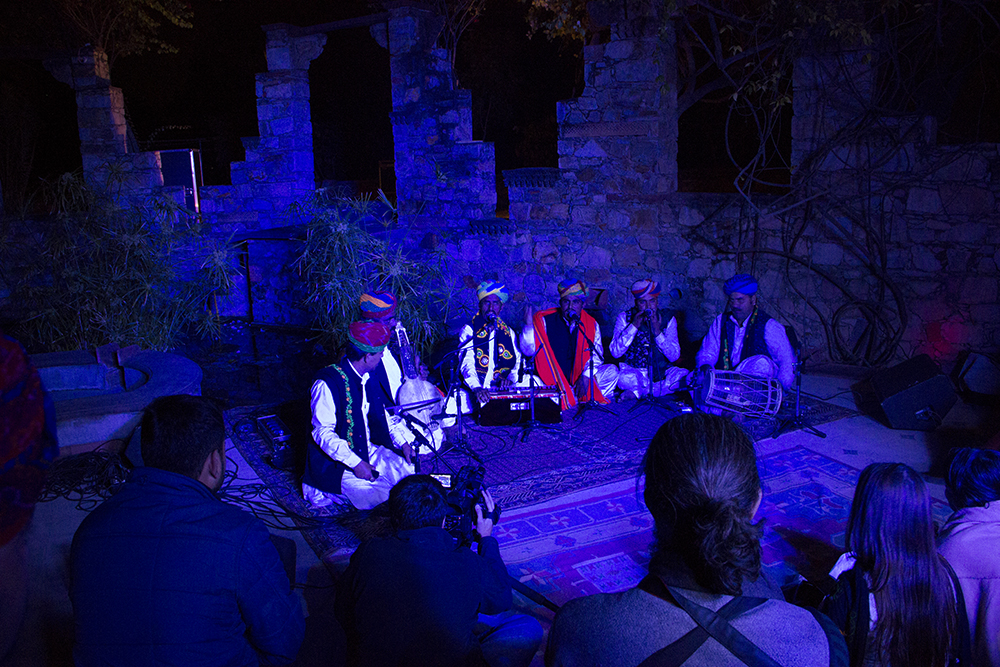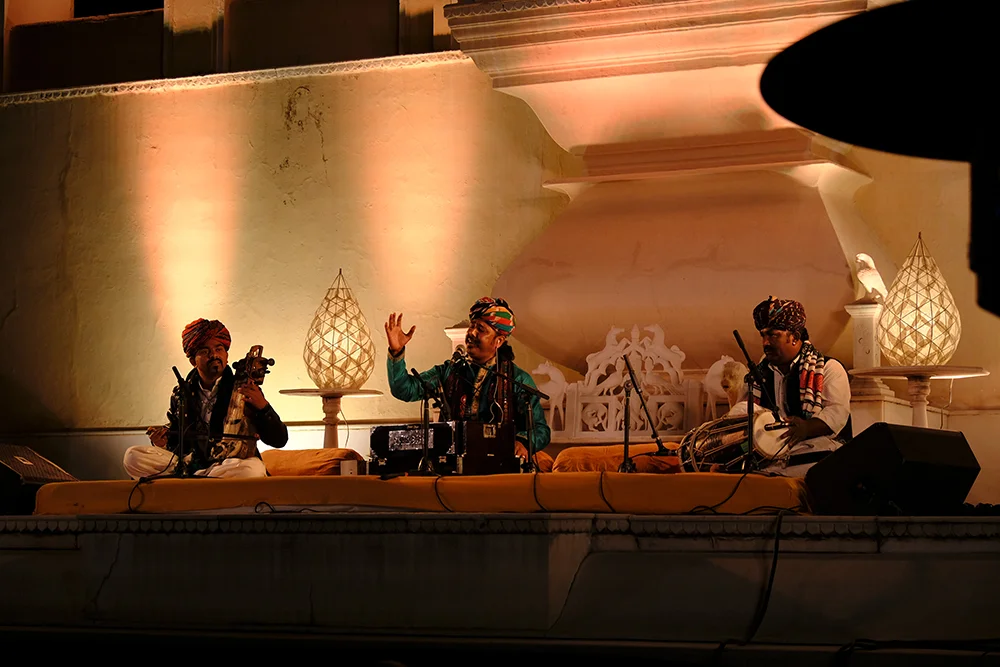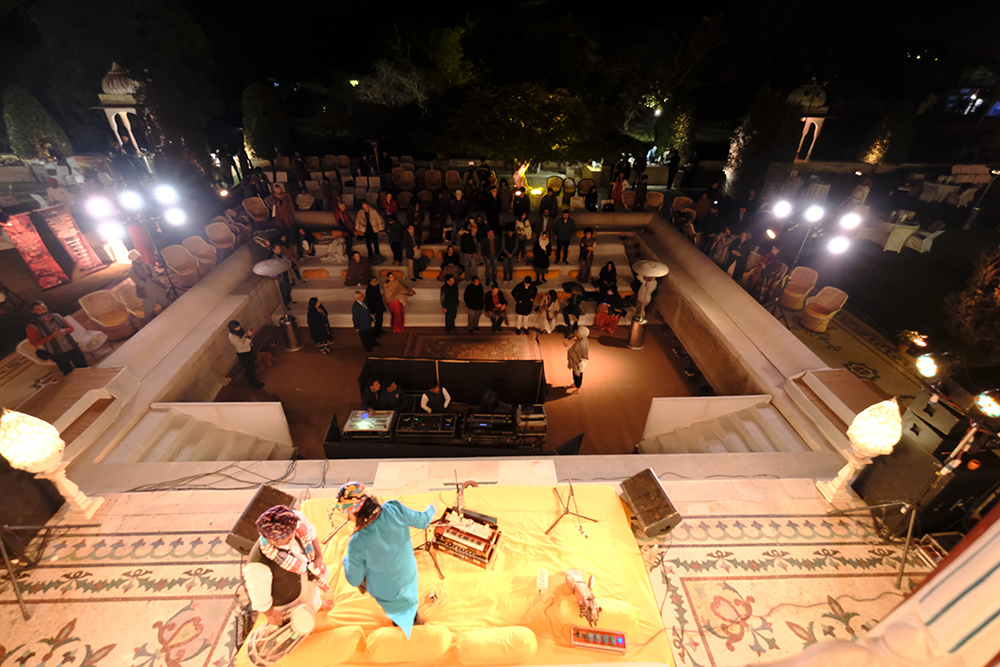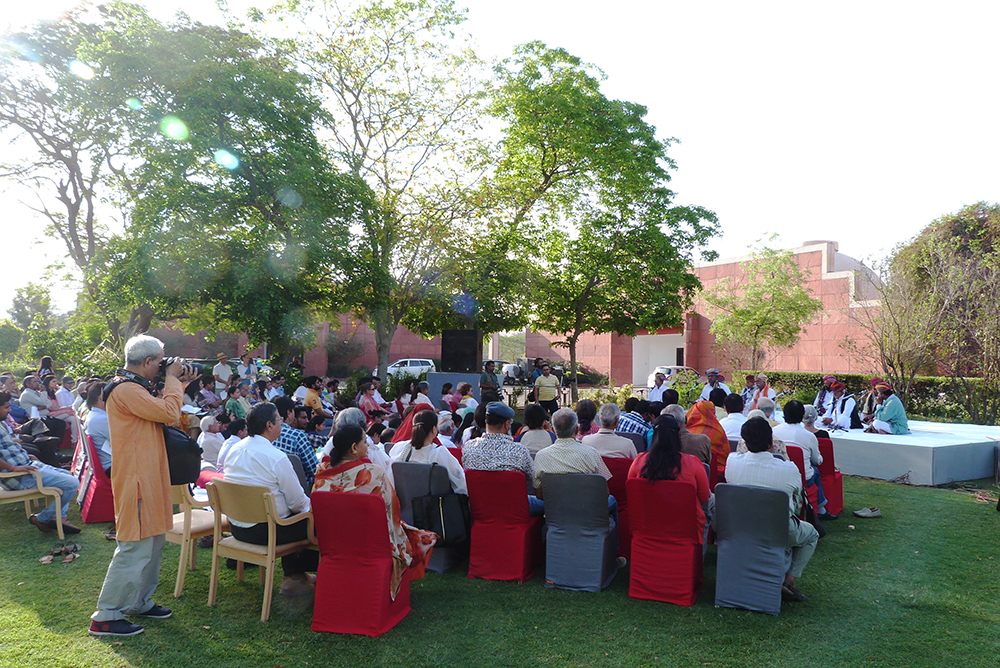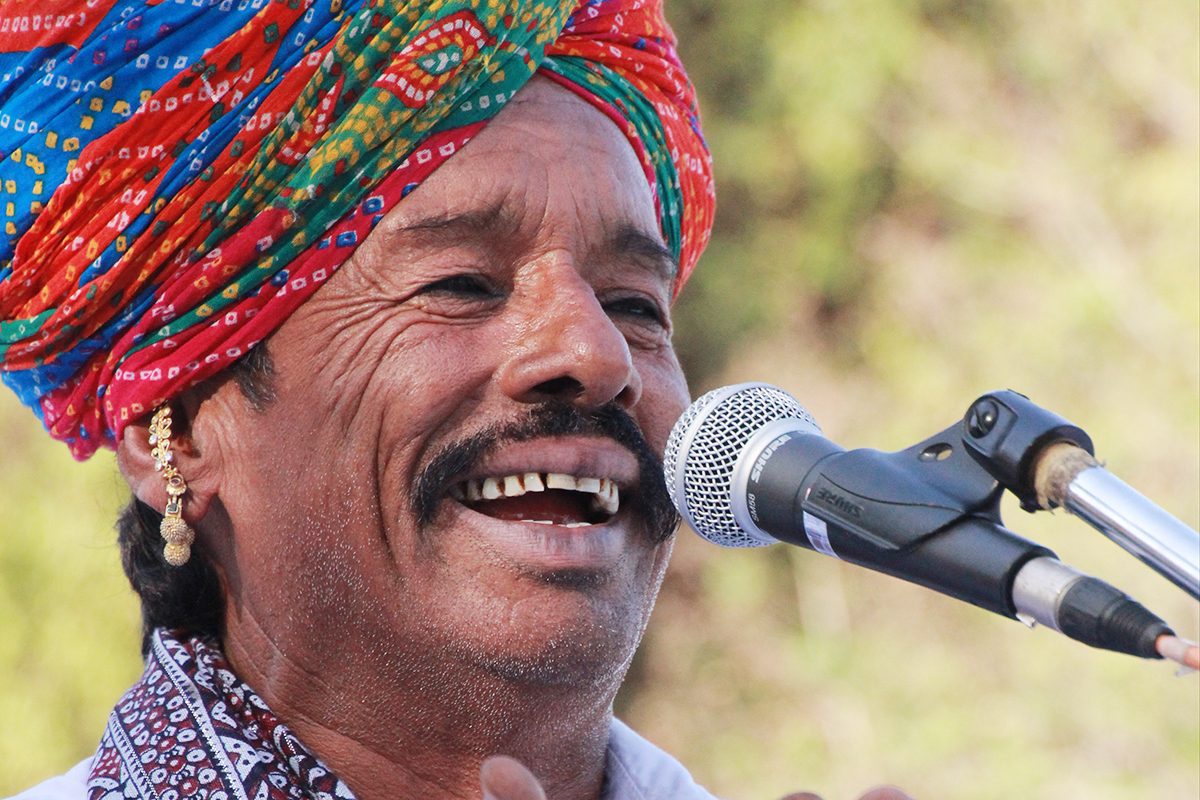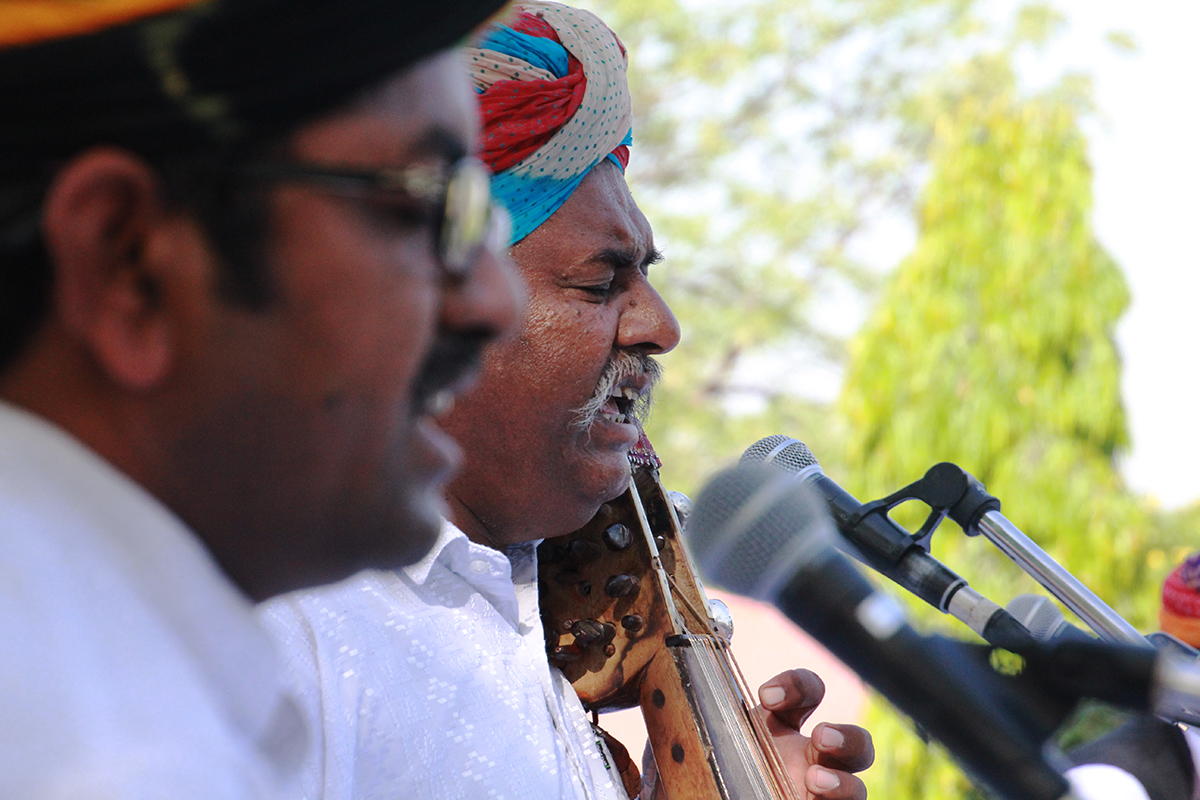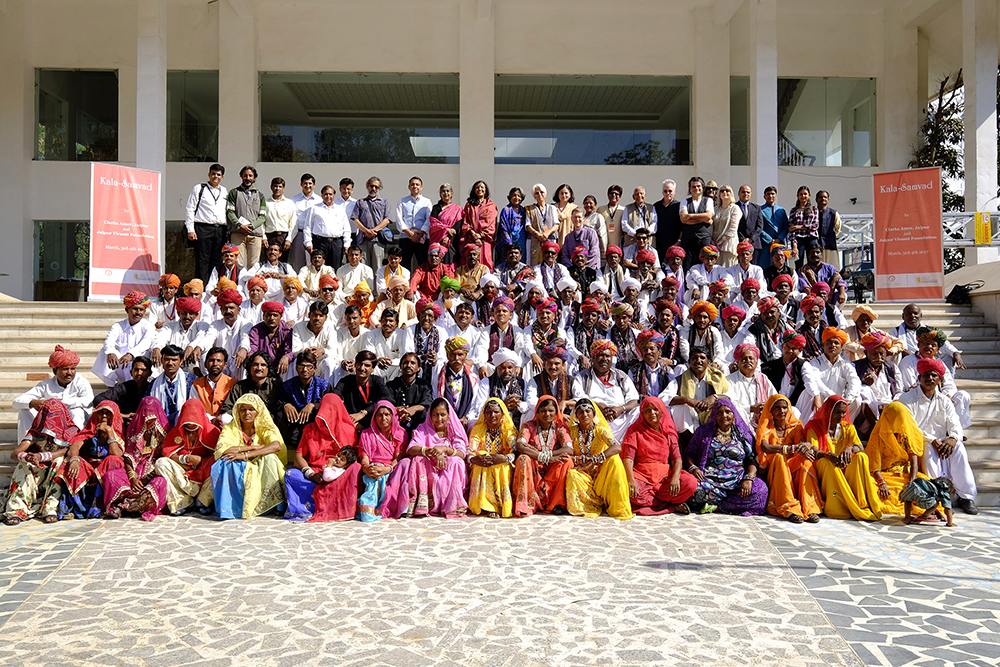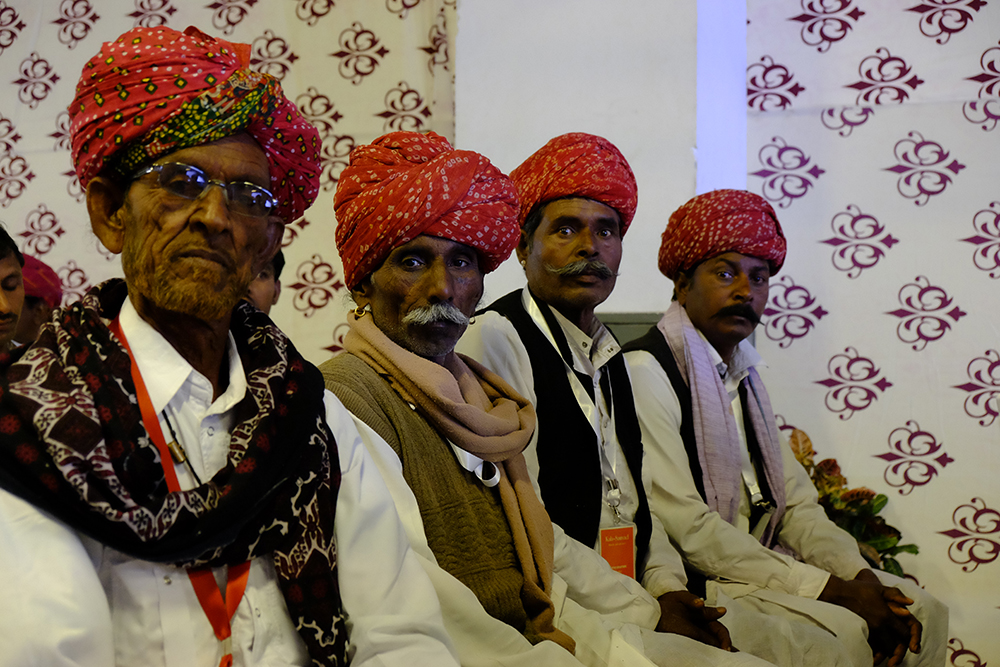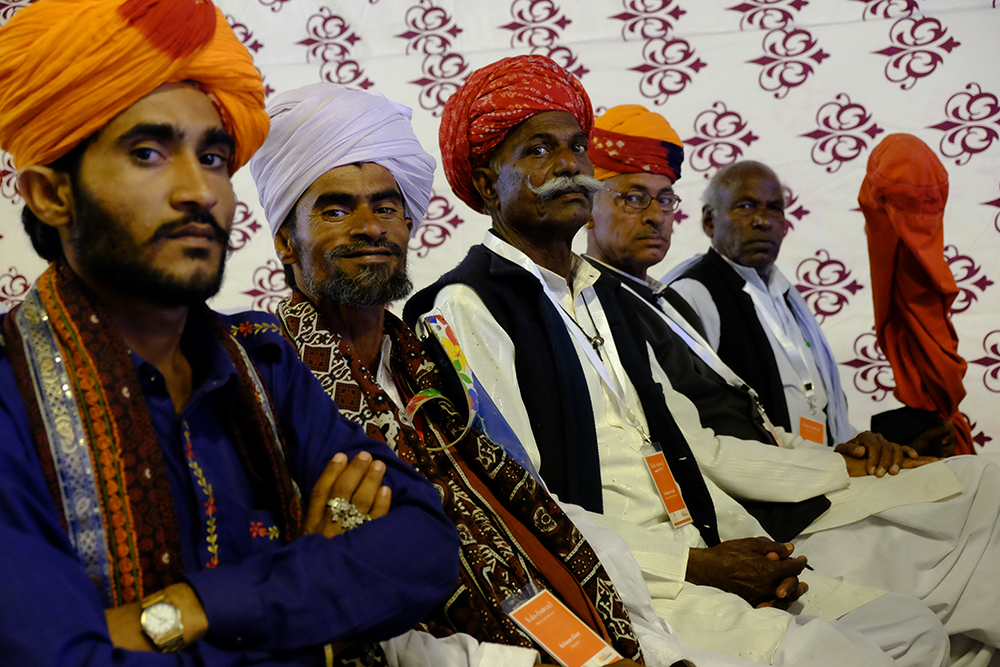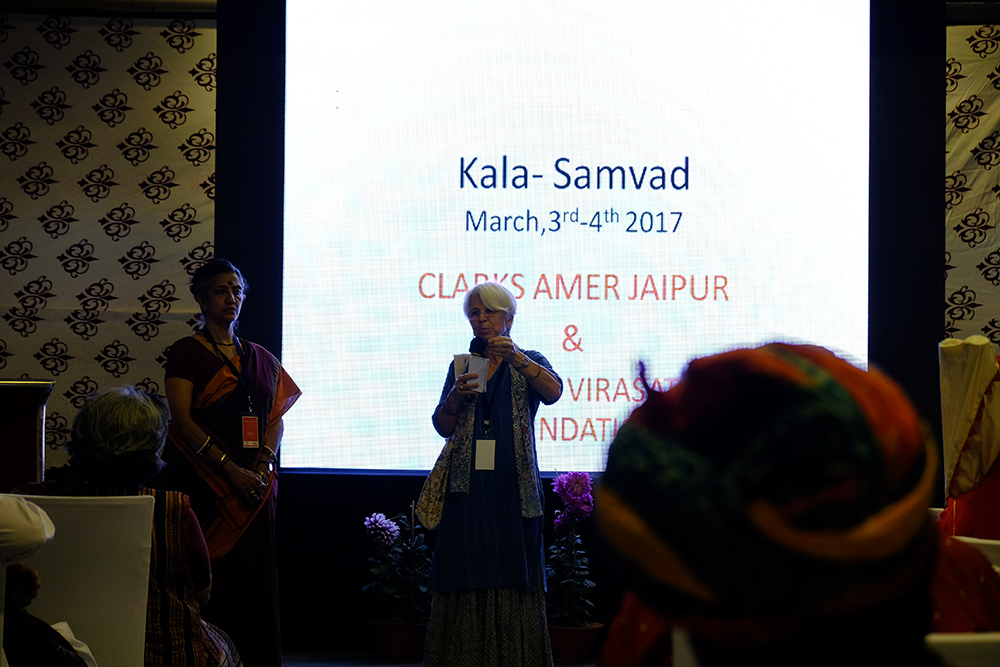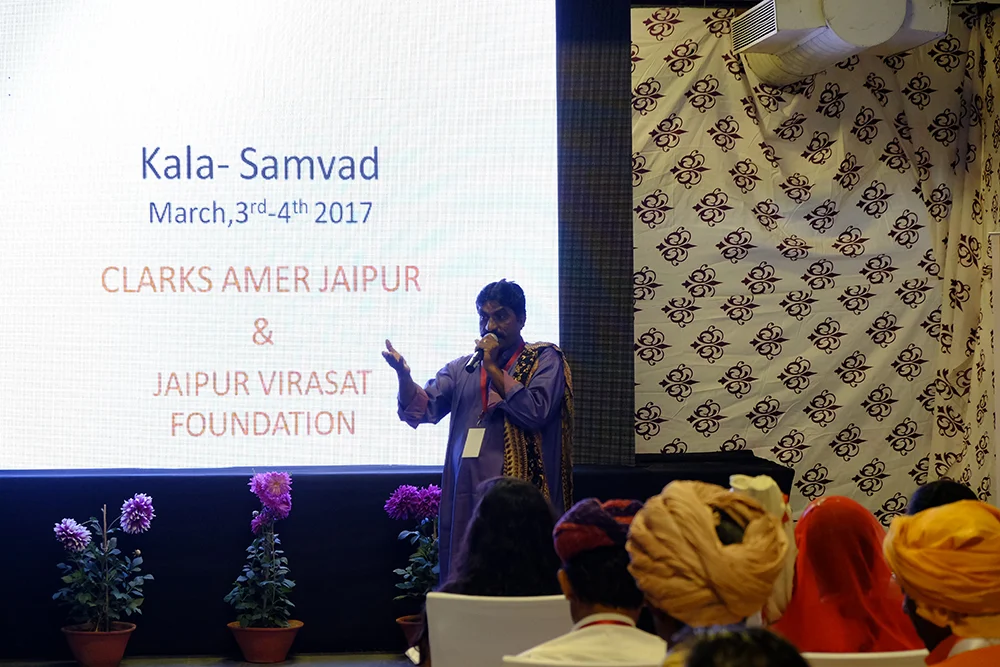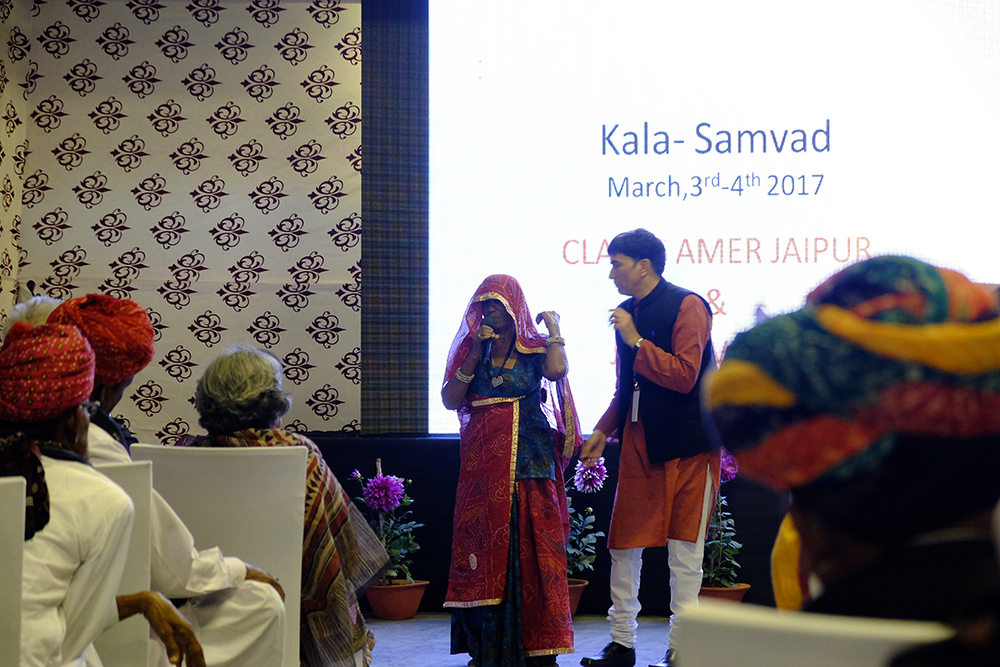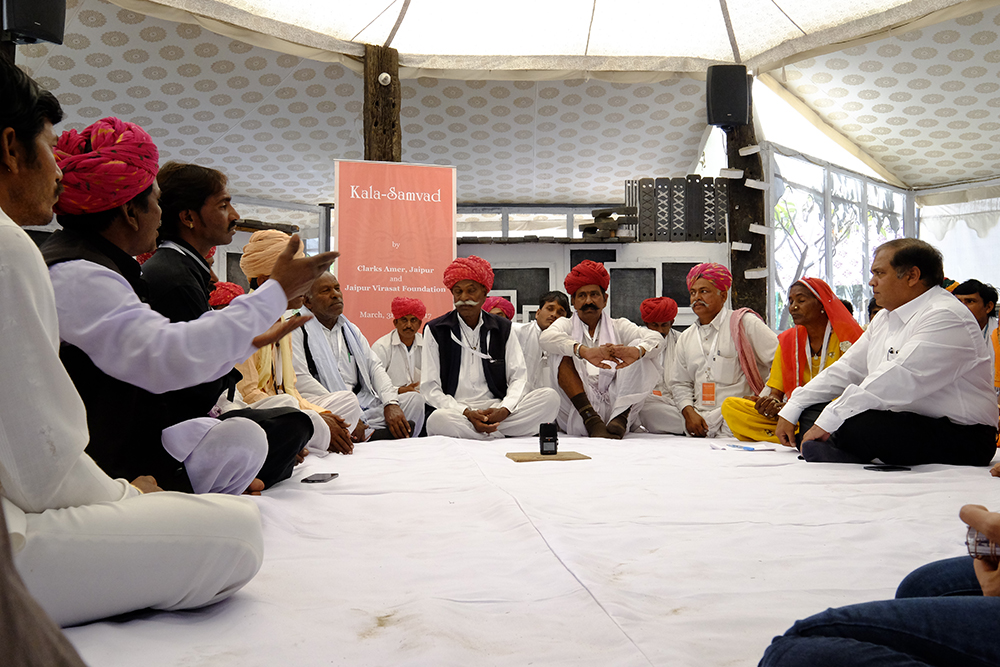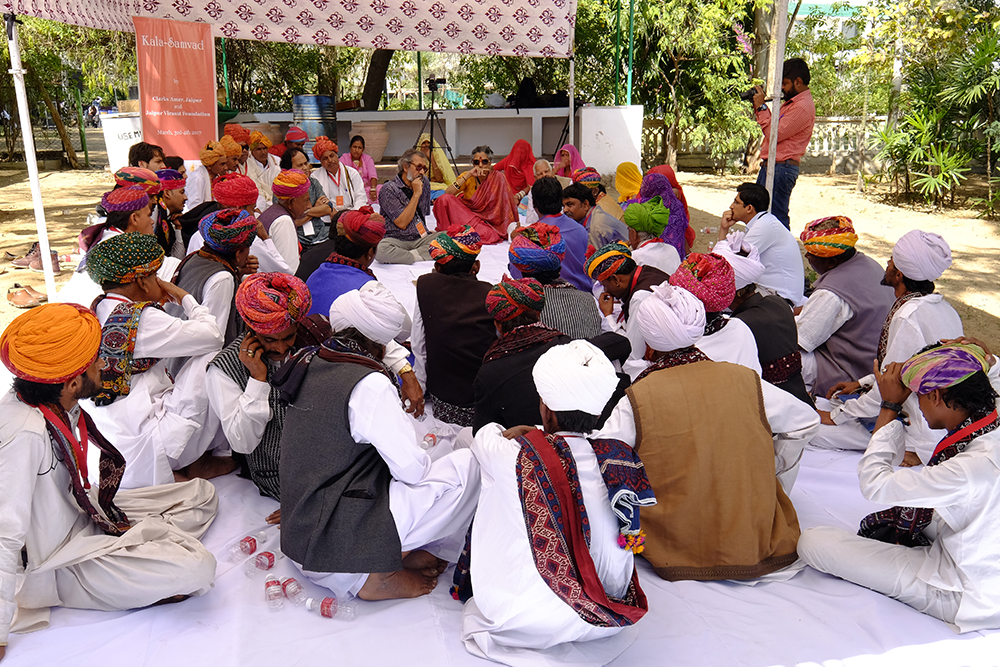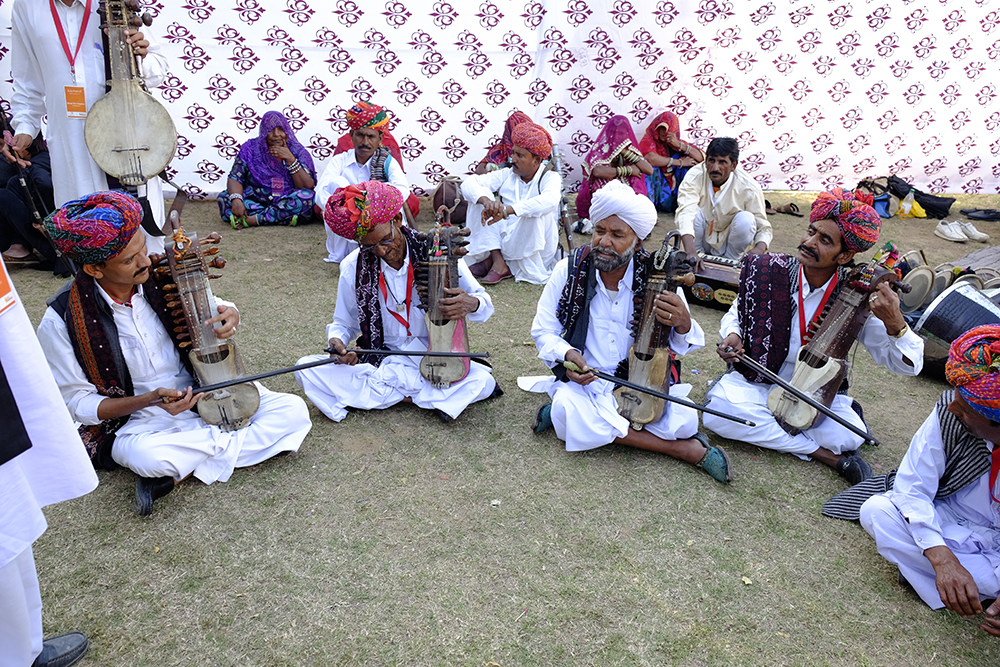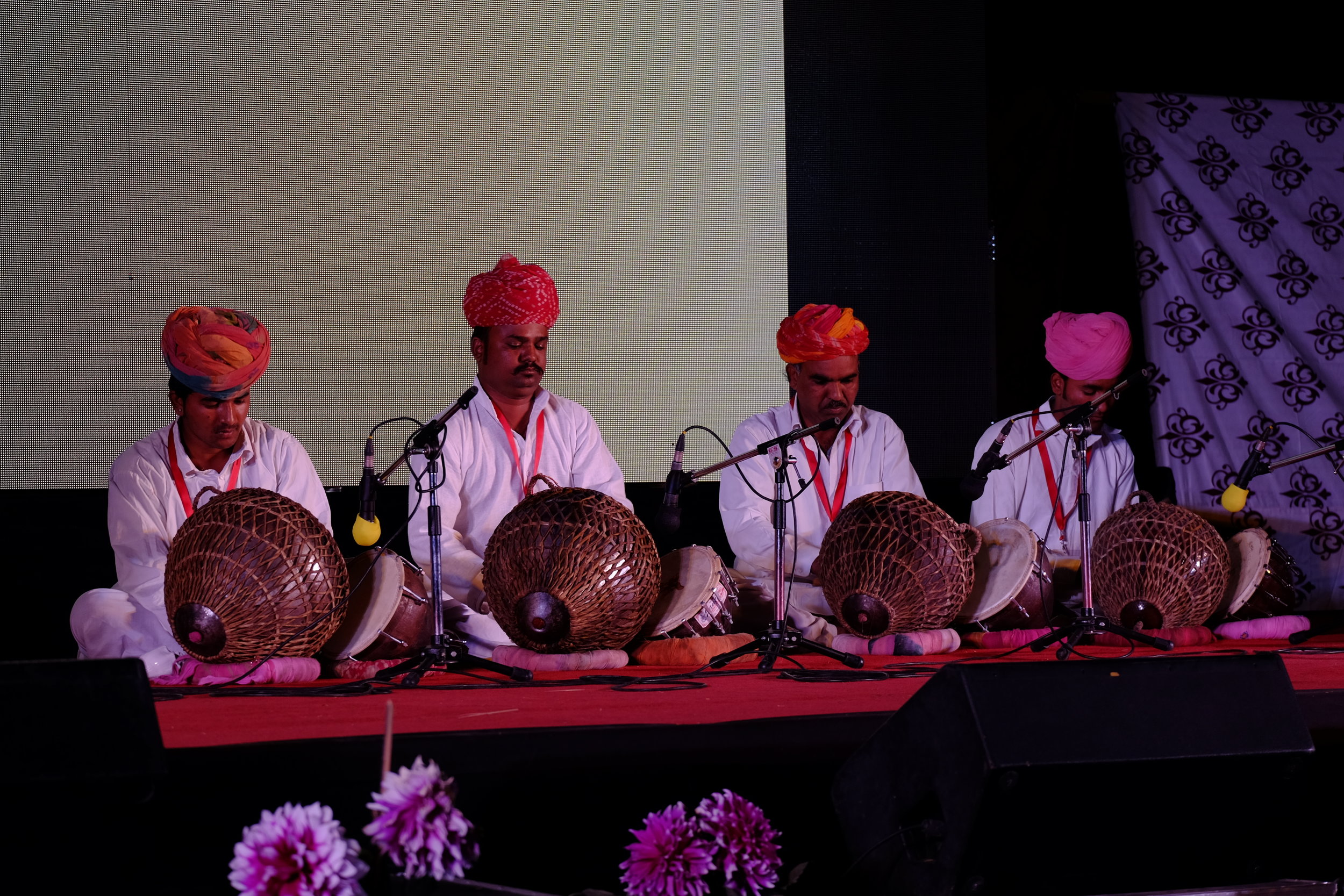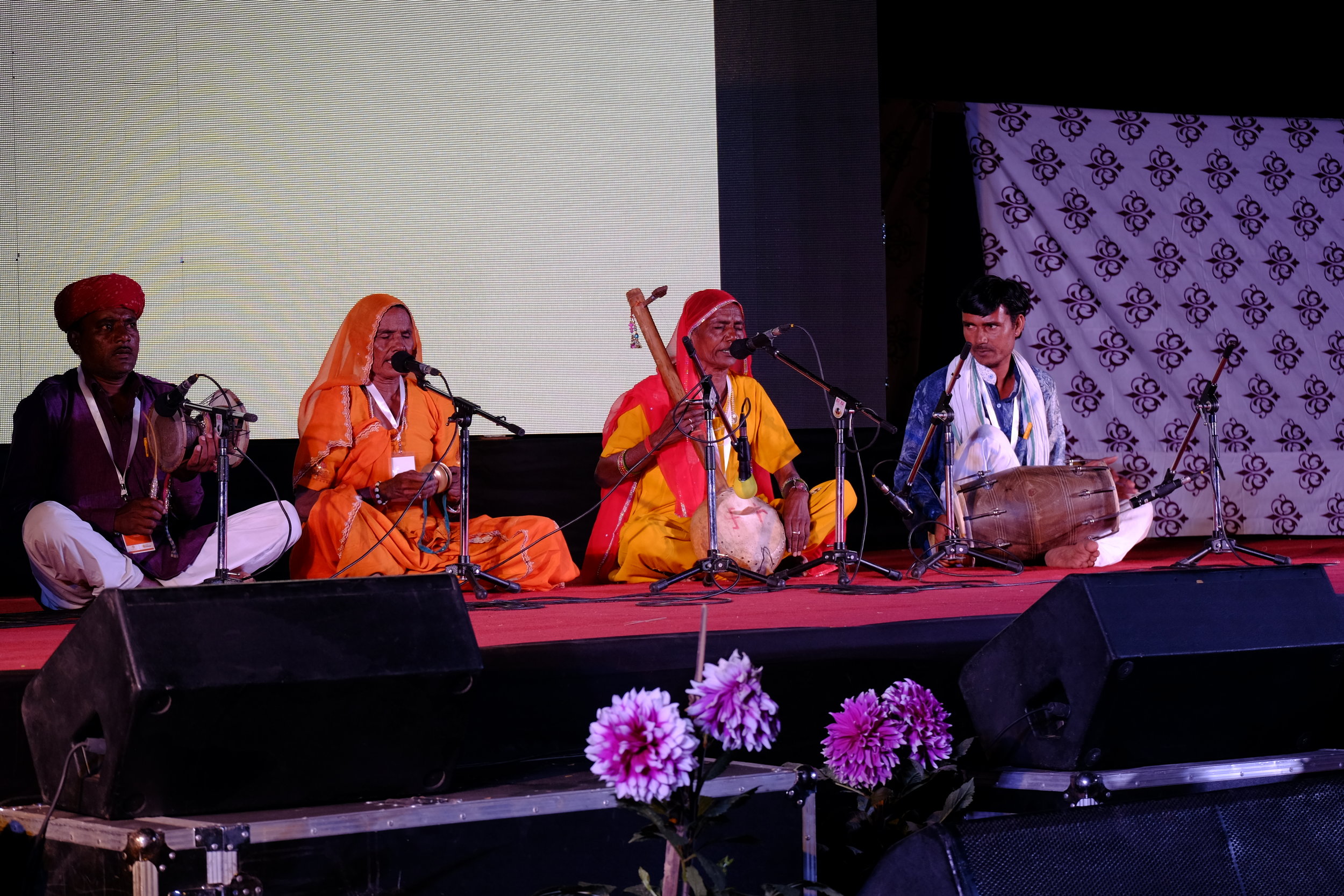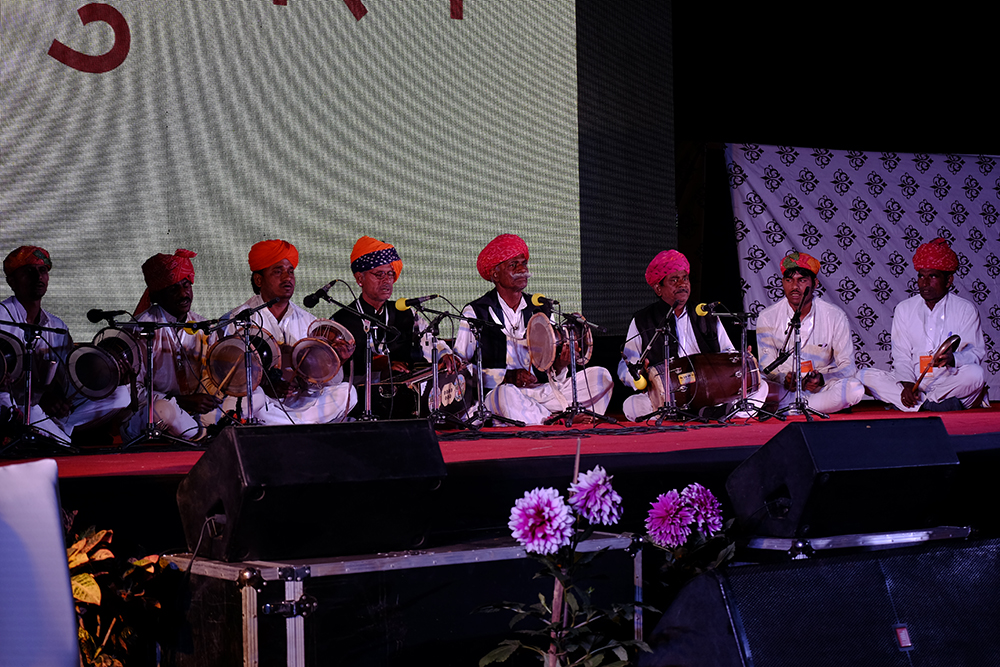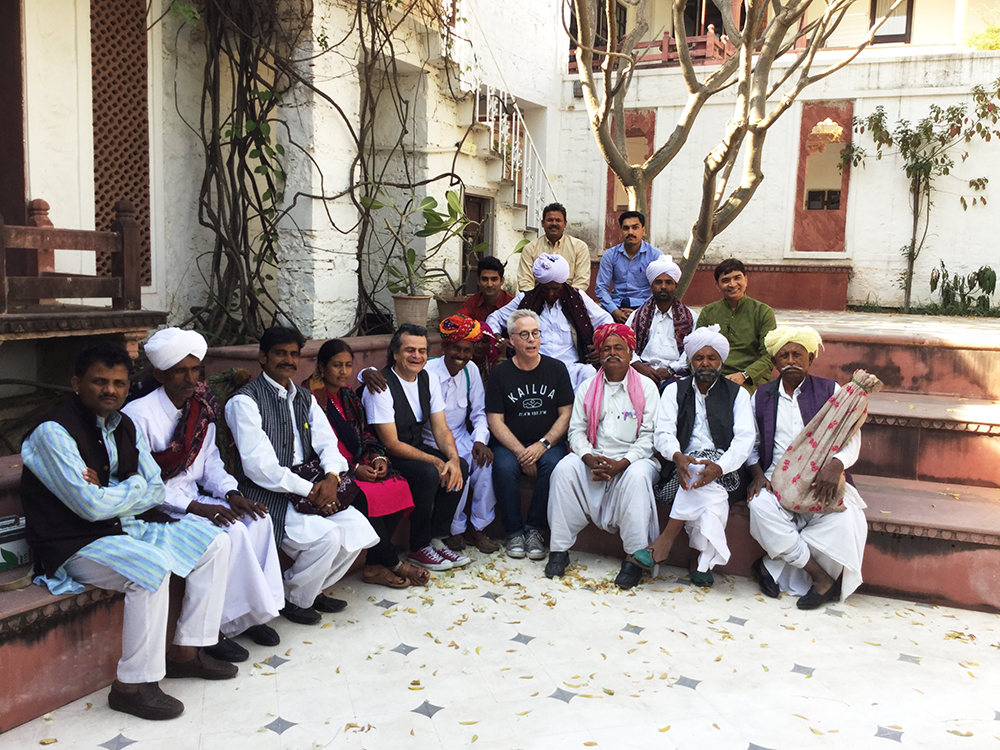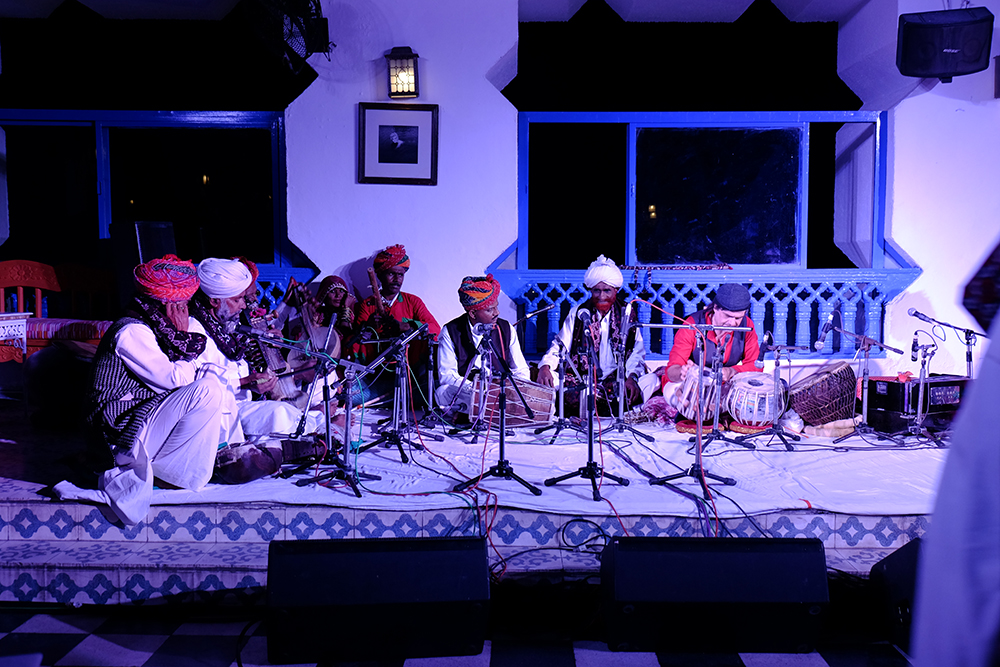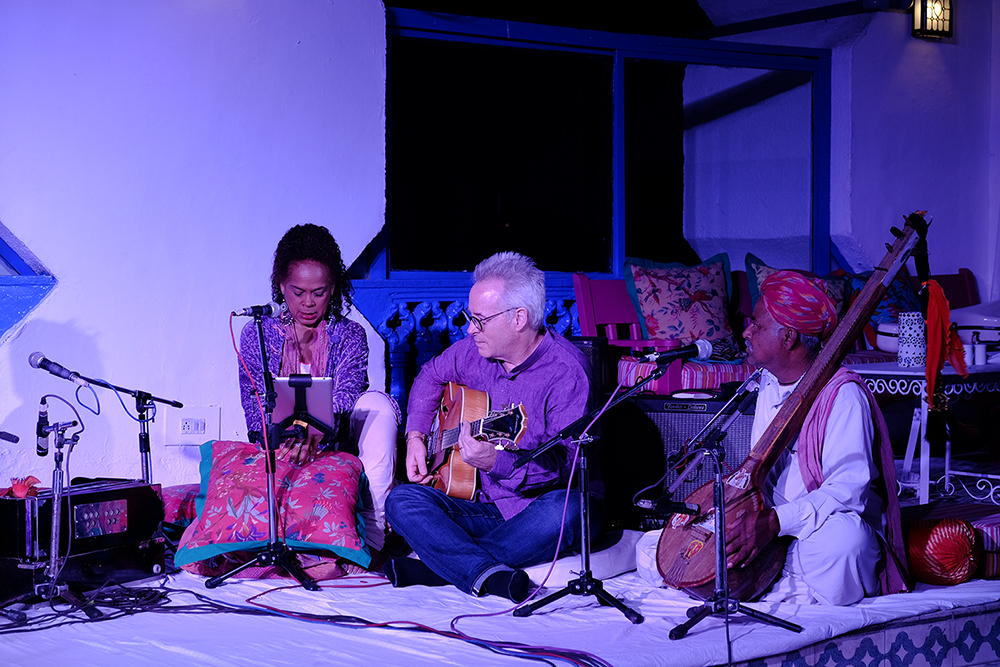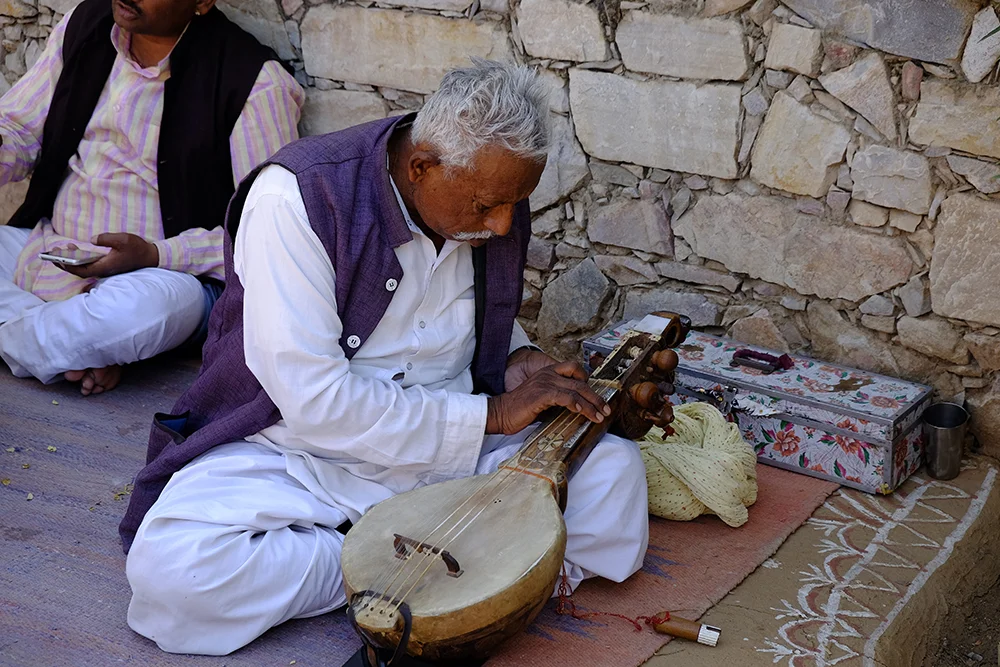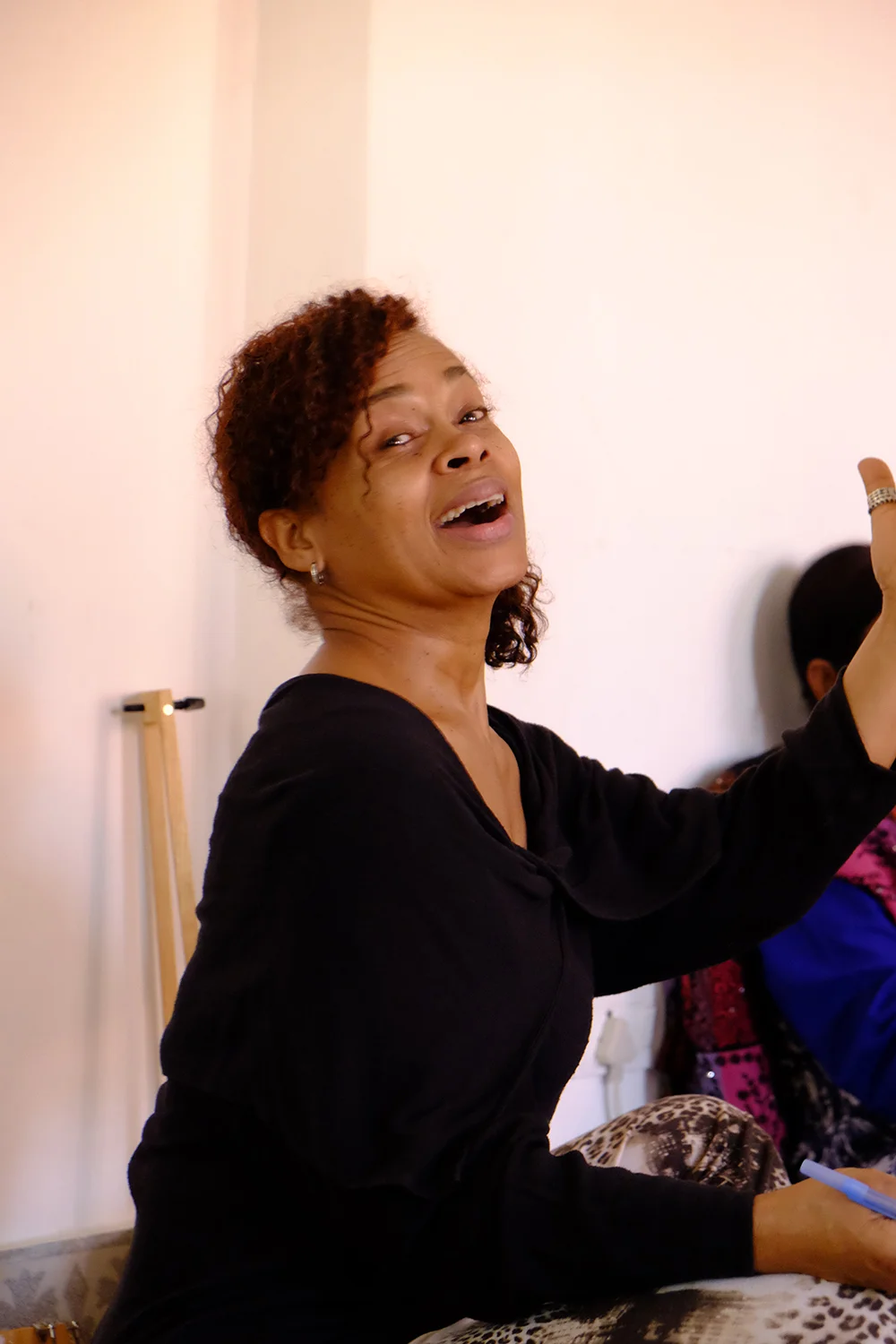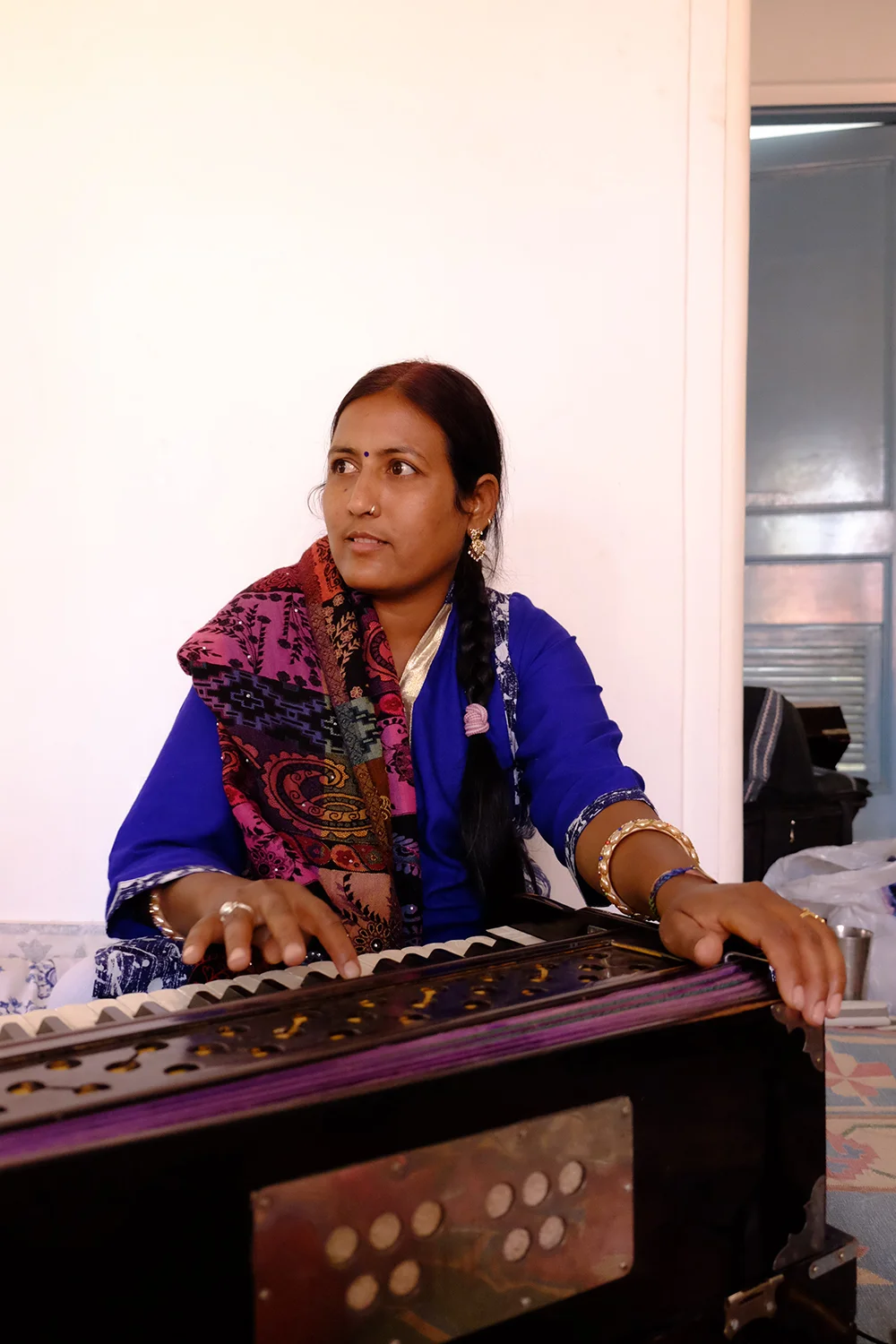RRAP Beginning
RRAP CONFERENCE
24th - 26th January 2018
Finding pathways to support the traditional musician communities of Rajasthan
3 Days - RRAP Curtain Raiser, RRAP Music Museum & Hub in-the-making showcase, Music Conference, Rajasthan Folk Recitals
16 Sessions - Sustaining Futures for Music Cultures, The International Context, Ground Realities in Rajasthan, Way Forward
23 Speakers - Musicians, Ethnomusicologists, Culture Bearers, Festival Directors, Art Culture Governance, International Culture Specialists, Archivists, Museum Curators, Music Entrepreneurs
13 Performances - Ensemble, Professional, Votive or Devotional, Occasional, Recitation, Experimental
31 Musicians - 3 cultural zones, 7 communities, 22 villages, 14 instruments
65 Delegates - 31 organizations, 15 panelists, 7 speakers
200 Attendees ... 3000 Followers
Faith Singh at the RRAP Conference 2018
HH Gaj Singh ji at the RRAP Conference 2018
JIVAN YATRA
First in a proposed series of recitals presented by RRAP to showcase authentic folk music and musicianship untouched by influences of Bollywood, popular Sufi, and overseas visiting audiences. The aim of RRAP Recitals is to reverse this trend, revive songs and styles by encouraging musicians to revisit their repertoire and to create a growing audience that wants to listen to more than signature tunes.
KALA SAMVAD
A two-day conference (forum) organized by JVF as a first step in its JVF Phase Three (RRAP). Its purpose was to bring together artists from many creative communities from across Rajasthan for the artists to share with us their challenges and opportunities and the support they feel they need.
ANAMI COLLECTIVE
The five-day creative workshop and two performances (eleven Rajasthan musicians and three world musicians) that followed the conference demonstrated what each person present at the conference knows: The extraordinary resource and treasure that is Rajasthan’s folk music has unlimited potential to be reinvented and renewed by its exponents when they are supported in the right way. It is a resource which, if properly managed and invested, can improve the lives of thousands, and in many different ways. Old forms of patronage have disappeared or are fast disappearing. New forms of patronage are needed. The collaboration affirmed the worth of these unparalleled skills and the imperative to keep this tradition alive.
